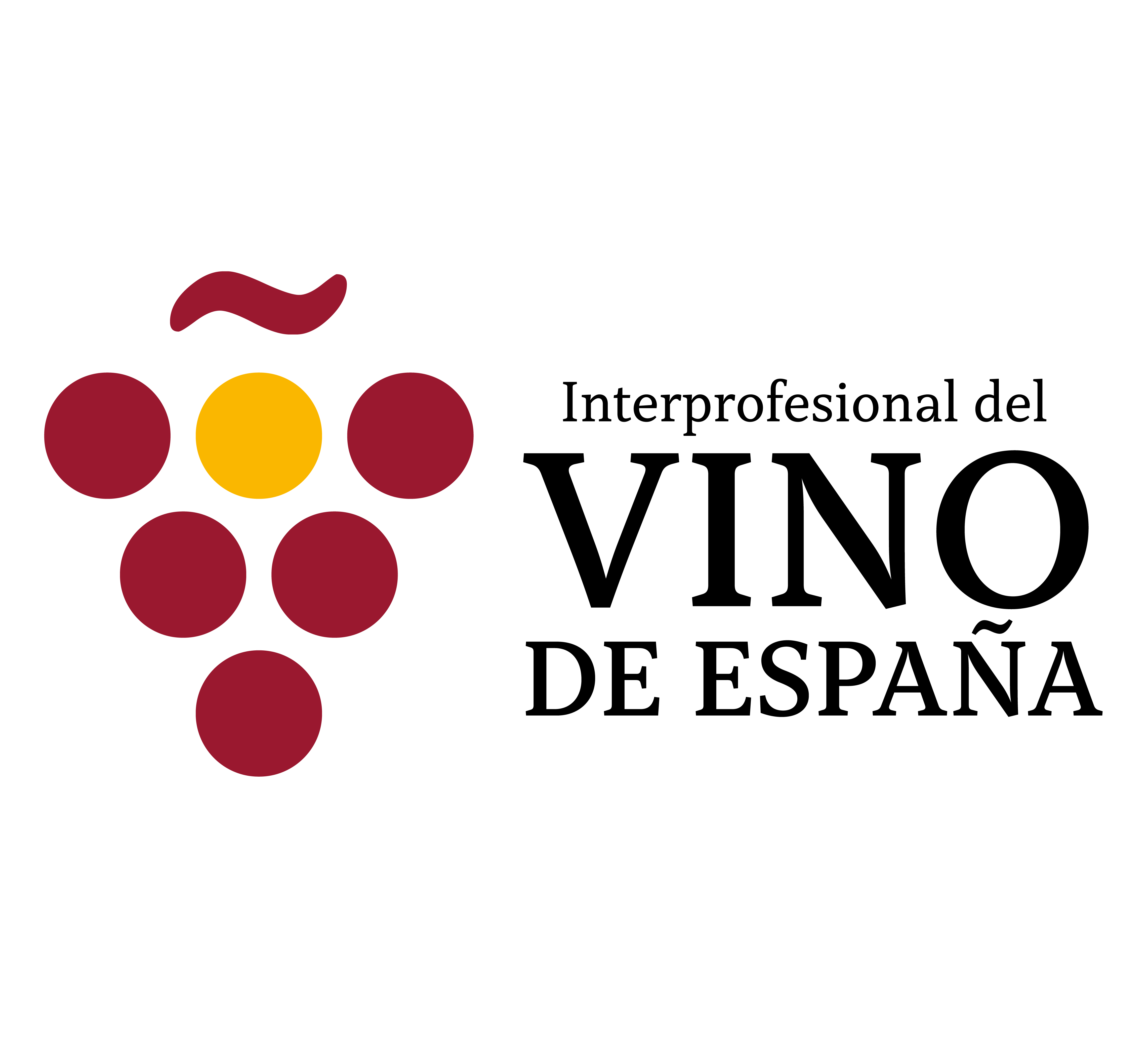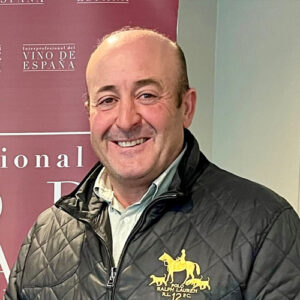The Spanish Wine Interbranch organisationn (OIVE)
About Us

The Spanish Wine Interbranch organisation (OIVE)
It is a non-profit entity that brings together representatives of the Spanish wine sector’s value chain, spanning both production and commercialisation.
The creation of the OIVE was approved on 30 July 2014*. This organisation aims to serve as a unifying instrument for the industry, addressing its challenges through collaboration and joint efforts of the various agents that form part of it.
“The Spanish wine industry is at a pivotal moment. Now, more than ever, a stable framework for cooperation is essential, and the Spanish Wine Association has an important role to play in achieving these objectives.”
*Order AAA/2502/2014, in accordance with the provisions of Law 38/1994 of 30 December, regulating agri-food interprofessional organisations and its associated Regulations, approved by Royal Decree 705/1997, of 16 May.
Purpose and Aims of the OIVE
The OIVE provides a stable framework for collaboration among its members, acting as a forum for discussion and decision-making on critical aspects of the internal regulation of this sub-industry.
Aims of the 2024-2029 Extension of Rule
Promotion and Consumer Information
- Domestic and International Markets
- Image of the Wine-Health Industry
- Responsible Consumption
Economic Intelligence
- Sectoral Information
- Market Access
Sectoral Integration
- Quality Control-Authenticity
- Industry Strategy
- Improved Value Chain Efficiency
R&D&I
- Climate Change
- Wine and Health
- Dynamization
Good governance and transparency in the implementation and management of the Extension of Rule
- Efficient management of the Extension of Rule System
- Clear and transparent communication with industry operators.
Organizational Structure
The OIVE seeks to be the backbone of the Spanish wine sector –a space where industry-wide needs and challenges are addressed. It may be described as “everyone’s house,” fostering dialogue and practical decision-making to support the sector. The organisation’s structure includes the main representative bodies of the wine industry at national level, encompassing both the production and processing/commercialisation branches:
PRODUCTION BRANCH
– Agri-Food Cooperatives of Spain (Cooperativas Agro-Alimentarias de España)
– Agricultural Association of Young Farmers (Asaja)
– Coordinating Committee of Farmers’ Organisations (COAG)
– Union of Small Farmers and Stockbreeders (UPA)
PROCESSING AND COMMERCIALISATION BRANCH
– Agri-Food Cooperatives of Spain (Cooperativas Agro-Alimentarias de España)
– Spanish Wine Federation (FEV)
– Spanish Wine Business Association (AEVE)

Fernando Ezquerro

Ruth Chocarro

Eduardo Perez

Juan Fuente

Joaquín Vizcaíno
MEMBERS
Pedro Barato
ASAJA
Alejandro García-Gasco
UPA
Antonio Mayoral
UPA
Francisco Javier Fatás
COAG
José Miguel Medina
Agri-Food Cooperatives of Spain
Antonio Ubide
Agri-Food Cooperatives of Spain
José Luis Benítez
FEV
Íñigo Torres
FEV
Carlos Nieto
FEV
Juan Vázquez
FEV
José García Carrión
AEVE
Manuel Civera
AEVE
Technical Commission
José Ugarrio – Agricultural Association of Young Farmers (Asaja)
Cristina Sanz – Farmers’ and Stockbreeders’ Coordinating Group (COAG)
José Manuel Delgado – Union of Small Farmers and Stockbreeders (UPA)
Emma Castro – Agri-Food Cooperatives of Spain
Paola Hiscock – Spanish Wine Federation (FEV)
Manuel Civera – Spanish Wine Business Association (AEVE)
Marketing Committee
Chaired by Juan Vazquez Gancedo
Strategic Plan Implementation Monitoring Committee
Chaired by Susana García Dolla
Management and technical team
General Manager – Susana García Dolla
Marketing Director – Coro Ramos Durán
Communications Director – María Díez Nepomuceno
Financial Administrative Officer – Luminita Bulancea
External Promotion Officer – Sergio Iglesias Cerezo
How to participate
As outlined in the Statutes of the Spanish Wine Interprofessional (OIVE), membership is open to any national-level representative organisation which can demonstrate it represents at least 10% of its respective professional branch. Regional organisations may also join, provided “they can prove that they represent at least 50% of their professional branch within their territorial scope, and the relevant sector or product accounts for a minimum of 3% of the Final Agricultural or Agri-food Production at national level, or 8% of the Final Agricultural Production at Autonomous Community level.”
The OIVE strives to serve as an inclusive forum where all opinions and suggestions are welcomed. These contributions are taken into account in General Assemblies, Board of Directors’ meetings and Technical Commission sessions. In line with this spirit of unity, the doors of the OIVE are also open through its Consultative Committee, which includes the main national wine organisations.
Advisory Committee
The statutes also provide for an Advisory Committee comprising organisations in the wine industry that, while not members of the OIVE, belong to the “broader family” of vine and wine products, such as musts, vinegars, and wine distillates.
The organisations represented on the Advisory Committee include:
- Association of Distillers and Users of Wine Distillates and Spirits (ADUAVI)
- Association of Distillers and Rectifiers of Alcohols and Wine Spirits (ADEVIN)
- Spanish Vinegar Association (AEVIN)
- Business Association of Spanish Grape Juice and Must Producers
- Wine Technology Platform (PTV)
- Foundation for Wine and Nutrition Research (FIVIN)
- Spanish Federation of Winemakers Associations(FEAE)
OIVE – CECRV Joint Committee
In 2017, the Spanish Conference of Regulatory Boards (CECRV) and the OIVE created a Joint Committee to address issues related to Designations of Origin. Any agreements reached by consensus within the Joint Committee are submitted to the OIVE’s governing bodies for ratification, as required.
Now more than ever, our goal is to foster communication and dialogue across the industry, building stable working relationships to pursue our common interests.
Transparency
The Spanish Wine Interprofessional Organisation (OIVE) is a non-profit institution that brings together entities representing all stages of the Spanish wine value chain, from production to commercialisation.
1. Regulations
The Spanish Wine Interprofessional Organisation (OIVE) operates according to the following regulations, which are directly applicable:
- Organic Law 1/2002, of March 22, 2002, regulating the right of association.
- Law 38/1994, of December 30, 1994, regulating interprofessional agri-food organizations.
The purpose of this section is to comply with the active disclosure obligations set out in Law 19/2013, of 9 December, on Transparency, Access to Public Information and Good Governance. In addition, we wish to make it clear that it is the will of this organisation and the guiding principles of its actions, transparency and good governance in the management of the extension of the rule. These principles are explicitly stated in Article 5 of Order APA/806/2019, of 25 July, which extends the Agreement of the OIVE to the entire sector and establishes the obligatory economic contribution. The agreement facilitates the following activities during the 2019/2020 to 2023/2024 campaigns: Promotion and dissemination of information about the wine sector and its products; economic intelligence and sectoral structuring; research, development, technological innovation, and related studies. In addition to complying with regulatory requirements, this website provides comprehensive information about the organisation’s activities, ensuring a level of transparency that goes beyond what is strictly required by the regulations.
2. Duties
The mission of the OIVE is set out in its statutes, in particular in Article 8. Mission and goals, which is presented below.
The full Statutes are available via this link.
- OIVE is established to represent and defend the interests of the wine sector, in line with the objectives outlined in article 3 of Law 38/1994, which governs interprofessional agri-food organisations. The entities within the OIVE regard it as a stable framework for collaborative work among all participants, providing a platform for open expression of opinions, as well as a forum for debate for the adoption of binding decisions on the internal regulation of this sub-sector, particularly on key operational aspects. To this end, the OIVE will develop, among others, the following activities:
-
- Ensure the proper functioning of the food chain and encourage good practices in the interactions between its members as participants in the value chain.
- Carry out actions to improve knowledge, efficiency and transparency of the markets by sharing information and conducting studies of interest to its members.
- Develop methods and instruments to improve product quality at all stages of production, processing, commercialisation and distribution.
- Promote research and development programmes to advance innovation in their sectors and integrate new technologies into production processes and sector competitiveness.
- Help improve the coordination of the different operators involved to facilitate the introduction of new products, particularly by carrying out research and market studies.
- Conduct campaigns to promote and raise awareness of food production and provide consumers with relevant information about these products.
- Provide information and carry out the necessary studies and actions to rationalise, improve and align agri-food production with market needs and consumer preferences.
- Advocate and support organic farming, integrated production and any other environmentally friendly production methods, as well as designations of origin, protected geographical indications and any other form of protection of differentiated quality.
- Draw up standard agri-food contracts compliant with national and EU competition regulations.
- Encourage the adoption of measures to regulate supply within the framework of national and EU competition laws.
- Facilitate the collective negotiation of prices for mandatory contracts under the terms outlined in EU regulations.
- Develop methods to control and rationalise the use of phytosanitary products and other production factors to guarantee product quality and environmental protection, in particular through product traceability.
- Carry out initiatives to enhance environmental protection.
- Encourage efficiency across the various elements of the food chain by implementing actions to improve energy efficiency, reduce environmental impact, manage waste and by-products responsibly, and minimise food losses throughout the chain.
- Design and implement training programmes for all members of the chain to ensure the competitiveness of farms, businesses and workers, as well as to facilitate the incorporation of qualified young professionals into the chain.
- Conduct studies on sustainable production methods and the market trends, including objective, transparent, verifiable and tamper-proof price and cost indices. These indicators can serve as references for setting prices freely agreed upon in contracts, always respecting the provisions of relevant EU sectoral regulations.
- Develop and implement the necessary training to improve the professional qualifications and employability of professionals in the agri-food sectors.
- Undertake other tasks assigned by EU regulations.
-
- Among all the duties outlined above, the main focus of the OIVE will be on developing the following:
-
- Promote the moderate consumption of wine in the domestic market and providing relevant information.
- Improve knowledge and transparency about production and the market through activities such as publishing aggregated statistical data on production costs, prices (including, where appropriate, price indices), volumes and duration of previously concluded contracts, as well as providing analyses of potential future market developments at regional, national or international levels.
- Encourage the adoption of measures to control supply in compliance with the provisions of national and EU competition regulations, while considering the existing rules in different sectoral areas.
- Promote the provision of information and conduct studies and research and development programmes to foster innovation, rationalisation and improvements in production, processing, and marketing. These efforts should aim to create products that are better adapted to market needs and consumer tastes and expectations, particularly in terms of quality and dietary contributions.
- Draft standard contracts compatible with national and EU regulations for the sale of grapes or processed products, ensuring fair competition and avoiding market distortions.
- Develop initiative to mutualise potential risks arising from commercial reprisals faced by Spanish operators abroad, enabling a collective response to such situations.
-
To achieve the purposes and goals outlined above, the OIVE may work with the various private associations and public administrations in all matters within its field of action. In particular, it can act as a partner entity for the delivery and distribution of public funds to beneficiaries of aid and subsidies, provided these are exclusively aimed at achieving the objectives established in Article 3 of Law 38/1994.
3. Organizational Structure
The governing bodies of the Spanish Wine Interprofessional Organisation are the General Assembly and the Board of Directors.
For more information on the organizational structure of the OIVE, click here.
4. Agreements
Agreement between the OIVE and ICEX España Exportación e Inversiones E.P.E. (Spanish Export and Investment Agency) with the general purpose of promoting the internationalisation of the Spanish wine sector and fostering awareness of Spanish Wines in international markets, thereby improving their image among professionals and consumers worldwide.
2021
2022
2023
5. Subsidies
Entidad
Ejercicio
Nº orden
Fin para el que se otorga
Importe concedido
*Consortium project with 70% participation of OIVE.
6. Financial Information
This section includes relevant financial and budgetary information on the OIVE such as the annual accounts and financial report, duly audited, including the settlement of the annual budgets.
Annual accounts, financial report and auditor’s report 2023
Annual accounts, financial report and auditor’s report 2022
Annual accounts, financial report and auditor’s report 2021
Annual accounts, financial report and auditor’s report 2020
Annual accounts, financial report and auditor’s report 2019
7. Remuneration paid to senior officers and senior managers
Neither the President nor the members of the Board of Directors receive any payments, in accordance with the provisions of the organisation’s statutes.